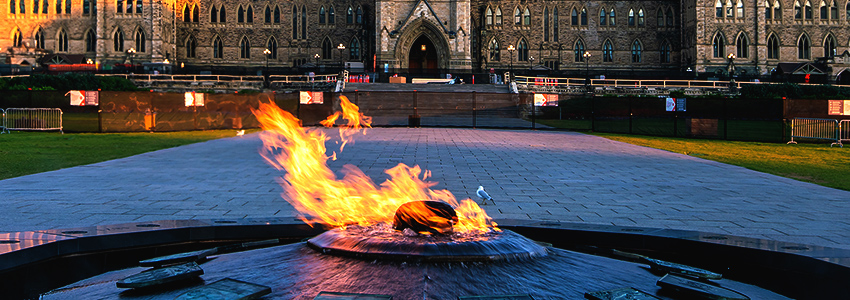Last week, Finance Minister Chrystia Freeland tabled the federal government’s first budget in more than two years. The budget includes $100 billion in stimulus measures to assist economic recovery as Canada moves through the pandemic, with a heavy emphasis on child care and climate change.
We were pleased to see wage and rent support programs extended. To ensure real estate professionals are able to access these programs, we’ve been in ongoing discussions with government officials on this matter since the emergence of COVID-19. We’ve also had meaningful conversations about the unique challenges facing REALTORS® and the potentially devastating outcomes of interruptions to their day-to-day business.
REALTORS® can be proud of their advocacy work over the course of what was a very challenging year. Budget 2021 included several big-ticket items for the housing sector and homeowners:
- Building on the energy-efficient improvement grants and free EnerGuide energy assessments announced in the 2020 Fall Economic Statement, Budget 2021 proposes $4.4 billion for homeowners to make deep home retrofits through interest-free loans worth up to $40,000. See the list of deep retrofits included here.
- Conditions for the GST New Housing Rebate, which entitles home buyers to recover 36% of the GST paid on the purchase of a new home priced up to $350,000, are being relaxed. It would now be available if the new home is acquired for use as the primary place of residence of any one of the purchasers, or a relation of any one of the purchasers.
- To tackle the issue of housing supply, Budget 2021 proposes to advance and reallocate $1.3 billion through the National Housing Co-Investment Fund and the Rental Construction Financing Initiative, including for the conversion of vacant commercial property into housing.
- As part of REALTORS Care® Week 2020, more than 300 of our members signed a letter to Minister Ahmed Hussen, Minister for Families, Children and Social Development encouraging him to promptly fulfill government commitments to end homelessness. The federal government has responded by announcing $2.5 billion for affordable housing through the Canada Mortgage and Housing Corporation.
- The federal government has committed to engaging with the Government of Quebec to determine what additional federal contribution is required to help Quebec residents address structural problems as a result of the presence of the mineral pyrrhotite in their homes’ foundations. Details will be provided in the next Fall Economic Statement.
- The Universal Broadband Fund would receive an additional $1 billion to support a more rapid rollout of broadband projects in collaboration with provinces, territories and other partners, resulting in access to faster, more reliable internet connections for thousands more Canadians and small businesses.
- $63.8 million would be allocated to Natural Resources Canada, Environment and Climate Change Canada, and Public Safety Canada to work with provinces and territories on completing flood maps for higher-risk areas. REALTORS® will benefit from a more accurate understanding of flood risk in their markets and communities.
- $14.9 billion over eight years for public transit projects across Canada, from new subway lines to improved rural transit. As part of this investment new permanent funding of $3 billion per year will begin in 2026-27. This will give communities a predictable source of transit funding, encourage greater housing supply, and build more sustainable, livable communities.
- Per CREA’s recommendations, the federal government will allocate $2.1 million over two years to support the implementation of a publicly accessible corporate beneficial ownership registry by 2025. This will assist REALTORS® in their efforts to keep ‘dirty money’ out of the housing market.
Budget 2021 also announces the government’s intention to implement a national, annual 1% tax on the value of non-resident, non-Canadian owned residential real estate that is considered to be vacant or underused, effective January 1, 2022. While we welcome discussion on measures to increase housing supply, we’ve engaged with government officials to discuss perceived effectiveness, dual-taxation, and the effect of a national measure on smaller communities. These include cottage/cabin country, where economic stability is dependent on foreign ownership.
In response to CREA’s advocacy, government will release a consultation paper to provide stakeholders an opportunity to comment on the parameters of the proposed tax, including whether special rules should be established for small tourism and resort communities. We will participate in the consultation.
The Office of the Superintendent of Financial Institutions also proposed an increase to the qualifying rate for uninsured mortgages prior to the budget: the higher of the mortgage contract rates at the time plus 2% or 5.25% as a minimum floor. We will be providing feedback on the proposed change.
This budget is equally significant for what the government chose not to include as that which it did. In the face of rapid price increases, and in line with signals coming out of the Bank of Canada, the government chose not to take broad precipitous action to cool housing markets, instead taking a wait and see approach as Canada moves through the pandemic. There was no move to implement the much rumoured, and always denied, capital gains tax on principal residences. We will continue to monitor that issue, and advocate against it on behalf of Canadian homeowners.

